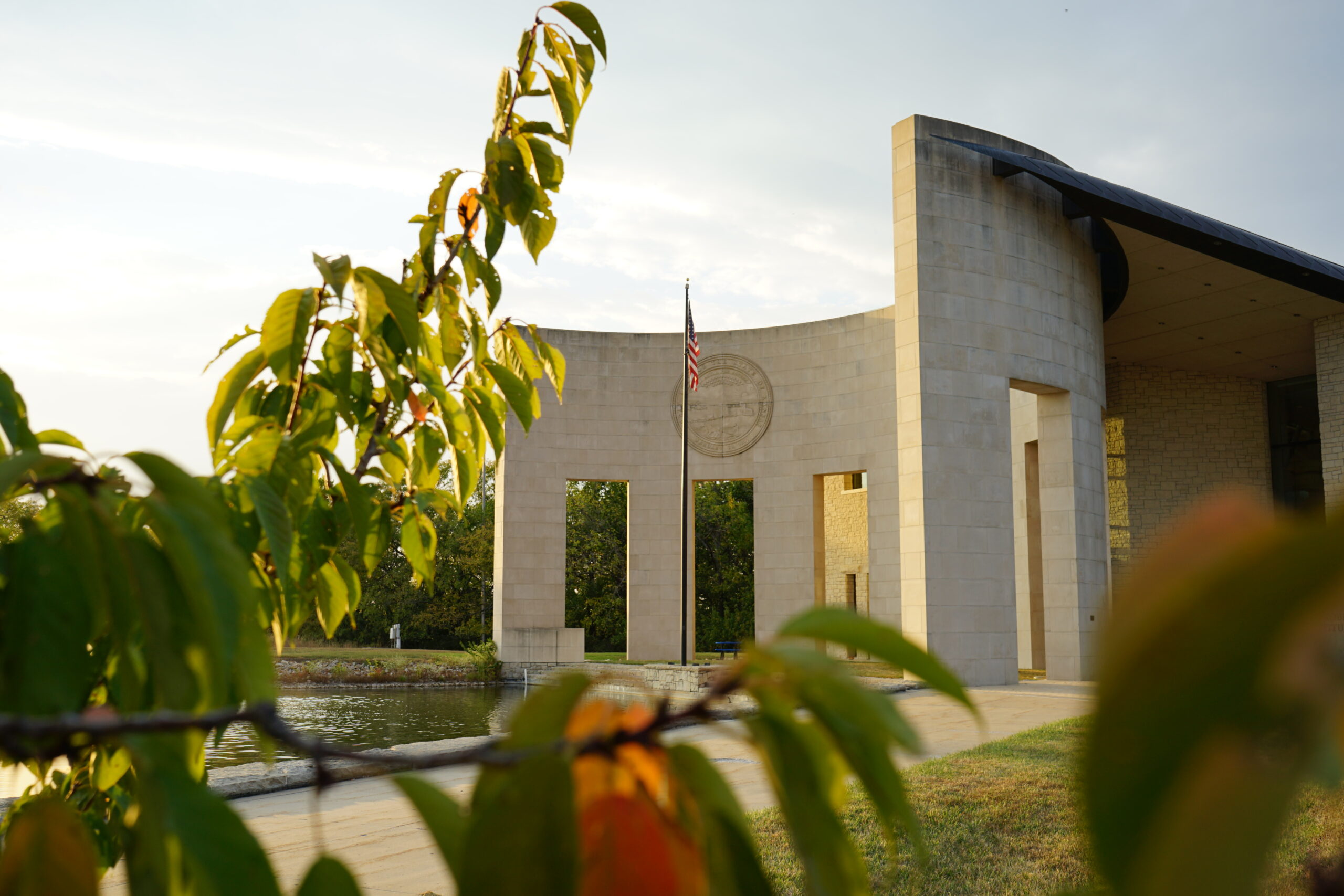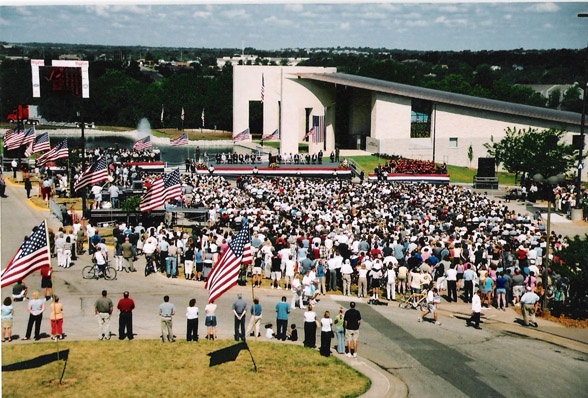Mission & History

Shortly after his loss in the 1996 presidential election, Senator Bob Dole was asked by Chancellor Robert Hemenway to entrust his congressional papers, accrued over 35 years of public service, to the University of Kansas, where he had studied before he began his WWII service.
Together, Senator Dole and the University of Kansas developed the Dole Institute to not only house and catalog these congressional papers for research use, but to offer public opportunities for all individuals to discover how they might best serve their community, their state, and their nation.
Established as the Robert J. Dole Institute for Public Service and Public Policy, and later shortened to the Robert J. Dole Institute of Politics, the Dole Institute was created as a non-partisan forum, dedicated to public service, training for leadership, and promoting the ideal that politics is an honorable profession, with an emphasis on reaching young people.

Housed on KU’s West Campus, the Dole Institute broke ground under the watch of its first director, presidential historian Richard Norton Smith, in October 2001 and completed construction in July 2003, dedicating the building in a ceremony on July 22–Dole’s 80th birthday. More than 25,000 individuals attended the celebration, which included dozens of Dole’s friends and colleagues, including former President Jimmy Carter, Condoleezza Rice, Senator Howard Baker, Senator John McCain, and Tom Brokaw, to name a few.
Today, the bipartisan Dole Institute hosts scores of public programs each year, discussing a variety of contemporary and historical issues. These programs have featured many national and world leaders. The Dole Institute welcomes thousands of visitors each year to learn more about Dole’s life and career through programming, museum visits, educational experiences and the research archive, one of the largest single congressional collections in the country. The Institute’s student, community and research offerings continue to grow and evolve, providing new opportunities and access at each turn.
The Dole Institute is committed to universal accessibility in all programs and resources. We are in the process of making all of our web projects fully accessible. An accessible version of the material represented on this site will be made available upon request. Please contact us at doleinstitute@ku.edu to request the material be made available in an accessible format, or for general assistance.